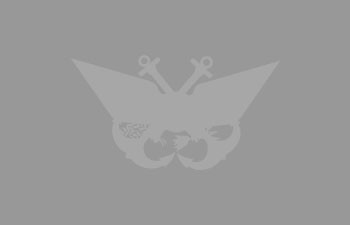
U.S. Coast Guard photos courtesy of USCGC Kukui.
HONOLULU — The USCGC Kukui (WLB 203) crew returned home to Honolulu Sept. 24 after a 35-day patrol of the Western and Central Pacific to deter illegal fishing of highly migratory fish stocks such as tuna and build relationships with Pacific partners."Kukui’s crew is proud to be part of the Coast Guard and U.S. effort toward a prosperous, secure, and stable Pacific," said Lt. Cmdr. Brendan Harris, Kukui’s commanding officer, originally from Somers, Connecticut. “The joint work we do under our bi-lateral agreements with Pacific nation’s like the Republic of the Marshall Islands have increased the overall number of boardings we are able to conduct and increased our enforcement presence in the Pacific where these highly migratory fish stocks are so threatened. In addition to patrolling the high seas and foreign countries exclusive economic zones, Kukui was able to patrol distant U.S. waters to ensure no illegal activity was taking place.”Assisting Kukui during these past weeks was shiprider from RMI, instrumental in facilitating communications between the Coast Guard and RMI’s officials, as well as with foreign fishing vessels encountered during the patrol. While on patrol, Kukui's crew conducted 12 fisheries enforcement boardings on commercial fishing vessels and patrolled the Pacific under the authority of the Western and Central Pacific Fisheries Commission and the bi-lateral agreement with the RMI. “It was great working with Perseus our RMI shiprider,” said Ensign Dahnyoung McGarry, a boarding officer aboard Kukui, originally from Wrentham, Massachusetts. “We talked a lot about the similarities and differences between our countries' laws and procedures. The teamwork between the Pacific Island countries is really what will sustain the fisheries in the Pacific for years to come.” During their first port call in Majuro, RMI, the cutter served as a backdrop to an all Micronesian Fishing Tournament and the crew donated items from Project Handclasp to women and children in need through the U.S. Embassy. Kukui’s additional port call in Kanton, Kiribati, was unique in that only 20 residents live on the island. They greeted Kukui crew members enthusiastically with local songs and handmade shell leis. The WCPFC is comprised of 40 nations that regulate fisheries in the high seas regions of the Pacific. Within these partnerships, the Coast Guard's 14th District works closely to promote the conservation and sustainable use of migratory fish stocks. The Coast Guard executes bilateral agreements with nine Pacific Island countries. This body of agreements, commonly known as shiprider agreements, allows the service to engage in bilateral maritime operations where a law enforcement officer rides aboard a Coast Guard platform, usually a cutter, enforces their own nation’s EEZ with the Coast Guard’s support. This allows for capacity building, training, joint operations and the safeguarding of highly migratory fish stocks in the Pacific that may enter and travel to any of a number of different EEZs including that of the United States.The U.S. has 90,000 miles of coastline and 3.4 million square nautical miles of exclusive economic zone, the waters that project 200 miles outward from the coast. In the 14th District there are eight large ring-shaped areas in the Pacific Ocean south and west of Hawaii, representing remote U.S. island commonwealths and territories. Of the total U.S. EEZ, 43 percent are within this region. In 2010 and 2011 Kukui assisted in terminating the voyages of fishing vessels for violations of fisheries regulations in the Kirabati and Tuvalu EEZs respectively. Kukui served to enforce the host nation’s laws being executed under the authority of the foreign shipriders that were assisted by Kukui’s boarding team while patrolling Kiribati and Tuvalu waters. In 2005, the U.S. Coast Guard Cutter Walnut, a 225-foot buoy tender like Kukui, with air support from Coast Guard Air Station Barbers Point seized the purse seiner Marshalls 201, for fishing tuna illegally inside the U.S. Howland-Baker EEZ, and a year later the case went to court in Guam.After a brief rest in homeport, Kukui’s crew will return to aids to navigation and law enforcement patrol duties.
